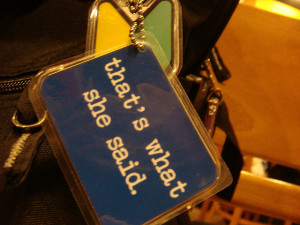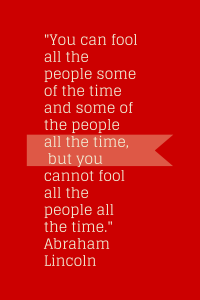On writing: Brad Phillips knows training is key
One of the blogs on my must-read list is Mr. Media Training, written by Brad Phillips. I’ve been reading Brad’s insights on media and communications for years. Brad truly is a born blogger, and a great communicator, so naturally, I wanted to him to share this thoughts on writing.

Brad Phillips is the president of Phillips Media Relations, a media and presentation training firm with offices in New York City and Washington, DC. Before founding his firm in 2004, he was a journalist with ABC News and CNN. Phillips is the author of The Media Training Bible, an Amazon #1 Public Relations best seller, the new book 101 Ways to Open a Speech, and the Mr. Media Training blog, the world’s most-visited media training website.
Twitter: @MrMediaTraining
1. What role does writing play in your work and how important a skill is it?
Writing is critical for our firm and touches all parts of our work. Our books help introduce potential clients to our work for a modest cost, and our blog—which posts fresh content at least weekly—does the same for free. Our writing also influences our training sessions; sharply written media interview practice questions often elicit surprising responses, which allow us to discuss better approaches with the client. In terms of its overall importance as a skill, I can’t think of many others that are more important. Framing your ideas well—particularly in a business dependent upon the written word—is non-negotiable.
2. Does writing well still matter in a digital/text/emoji world?
When I first joined Twitter in 2009, I feared that it would hasten grammar’s demise, or at least its relative importance. To my surprise, I found that the challenge of reducing thoughts to a compelling 140 characters tightened my writing in other places, too. Like so many things, writing can both thrive and suffer in a digital world.
3. What’s the best advice you’ve received or would give on how to improve writing skills?
The best advice may also be the most obvious: the greatest writing lives in the editing. For example, my preference is to frame a blog post in my mind before writing, hammer it out quickly, and then spend the majority of my time cleaning it up, moving pieces around, and tightening the writing.
4. What are your top three writing resources or references (digital or paper-based)?
I don’t have any specific writing resources, but try to pay attention to other bloggers. For some reason, blog posts are the perfect length for me. I’ve always struggled with longer-form writing, which is why I organized The Media Training Bible as 101 two-page lessons rather than, say, eight main chapters containing 25 pages each.
5. Do you follow a style guide, and if so, which one?
I’ve never felt a compelling need to marry myself to a single style guide; even the editor for my books relied on Chicago style but modified it to meet our needs. This is one of those areas in which it’s helpful to know the rules in order to know how and when to break them. More important than stringent rules to me is making sure my choices are grammatically defensible.
6. What’s your top writing/grammar/usage pet peeve?
My biggest pet peeve is when writers include unnecessary words. A few extraneous phrases in an effort to achieve a friendlier tone is one thing. But when it’s pervasive throughout someone’s writing, I click away from their post.
7. What’s your favorite word and what’s your least favorite?
My favorite word is “yes,” not when offered in an unthinking or overly compliant way, but when someone agrees to take on a challenge with determination and enthusiasm. My least favorite is “like” when used as verbal filler.
Do you agree with Brad editing is the most important part in producing top-notch writing? I know I do! Share your thoughts on writing in the comments, and be sure to check this space next month when another communications pro will share his or her thoughts on writing.
Have a meaningful and relaxing Memorial Day weekend: Unofficial summer is finally here!





